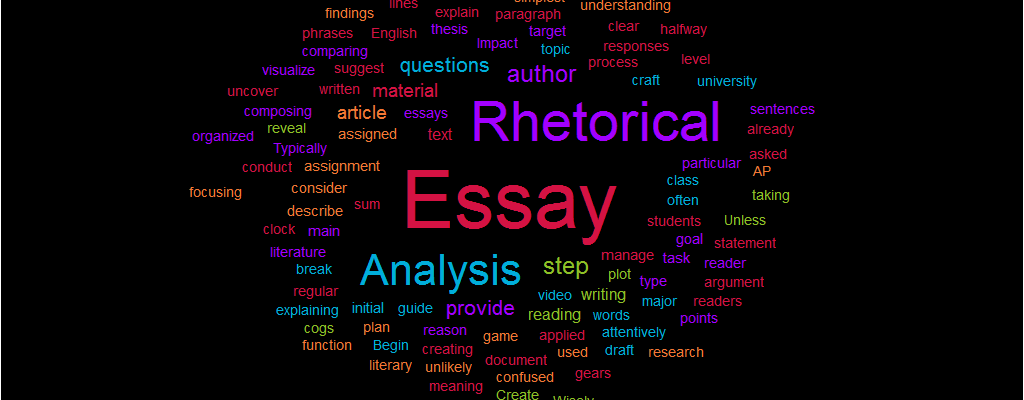How to Craft a Rhetorical Analysis Essay
Publication Date:

A rhetorical essay is the type of task that most students do not face too often. You will unlikely be assigned to come up with such an essay in a regular English class. Unless you are taking AP literature or a university-level literature class, you will not be assigned with this kind of paper. Typically, such essays provide an analysis of the way a material is written, not on the meaning behind it. For this reason, students often get confused when they are asked to craft this kind of assignment.
If you want to get essay help, consider reading this article to get a better idea of how to manage a rhetorical analysis essay. Below, we suggest you a step-by-step guide.
Step 1: Get a clear understanding of the task
Consider comparing the process of composing a rhetorical essay to creating a guide for a video game. If you were assigned to do that, you would not describe the plot of the video game, but you would explain how to play it. This is the simplest metaphor for explaining your task. When you are able to visualize it like a clock that is open to reveal its gears and cogs, you are already halfway there. To manage your assignment, you must be able to read between the lines, conduct research, and sum up your findings. You must break down sentences, phrases, and words from the document to uncover every literary function used by the author.
Step 2: Get organized
Create a plan of the process while focusing on the main goal. Wisely plan your time for reading, examining, and actually writing. Set your main goal before moving to reading the article and creating your initial draft.
Begin by reading the assignment attentively. Then thoroughly read the article for the first time. After it, decide how you are going to manage it, and which questions you have to respond. And only then you can start your writing.
Step 3: Read the text and ask the questions
If you read any good rhetorical essay for sale sample, you will see that its author has made a careful investigation to craft the paper. If your goal is coming up with an excellent paper, you aim to carefully examine the text.
Read the text attentively for the first time, and put multiple questions to it. Below are several points to describe and evaluate on this stage:
- The reason why the author researches this particular topic
- The target readers
- Author’s intention in writing
- Article’s argument
- Type of strategy applied
- Type of style used
- Impact on the reader
- Answer if the overall form and content of the writing correspond
Generally, the vital questions that you must provide answers to are the following:
- What does the author try to say?
- What does he/she do?
- What methods does he/she use?
Once you have responses to these questions (and probably some others, as well), you will have a comprehensive idea about what to write.
Read the material one more time. Now, pay your attention to the structure of the document and strategic functions of its parts. Concentrate on particular techniques, tools, words, and means that the author applies for achieving the verbose mode.
Step 4: Write the initial draft
Consider using a five-paragraph form. Just like most types of essays, a rhetorical analysis essay has to consist of the introduction, body part, and conclusion.
Begin by introducing the author of the text. Provide your opinion on the objective, major idea, target readers, and general topic of the material. Describe the major point of the writer’s work. Write a thesis statement that raises an argument and provides a short summary of what your essay is about.
Break down the body part into sections. Write in detail about the devices and strategies applied in the initial article. Use the responses to the questions from step 3. Support your claims with citations and examples, and provide your arguments. Additionally, provide a judgment of the diction and tone of the material.
The concluding paragraph should be convincing and provide a feeling of completeness. In this section, summarize the main points and tell how the material leaves an impact on the reader. Also, reword the thesis statement here.